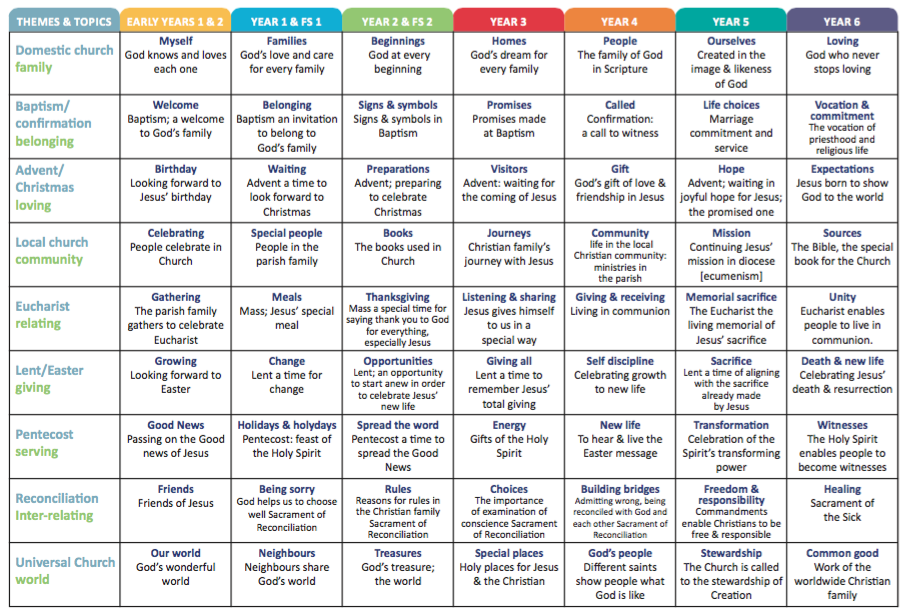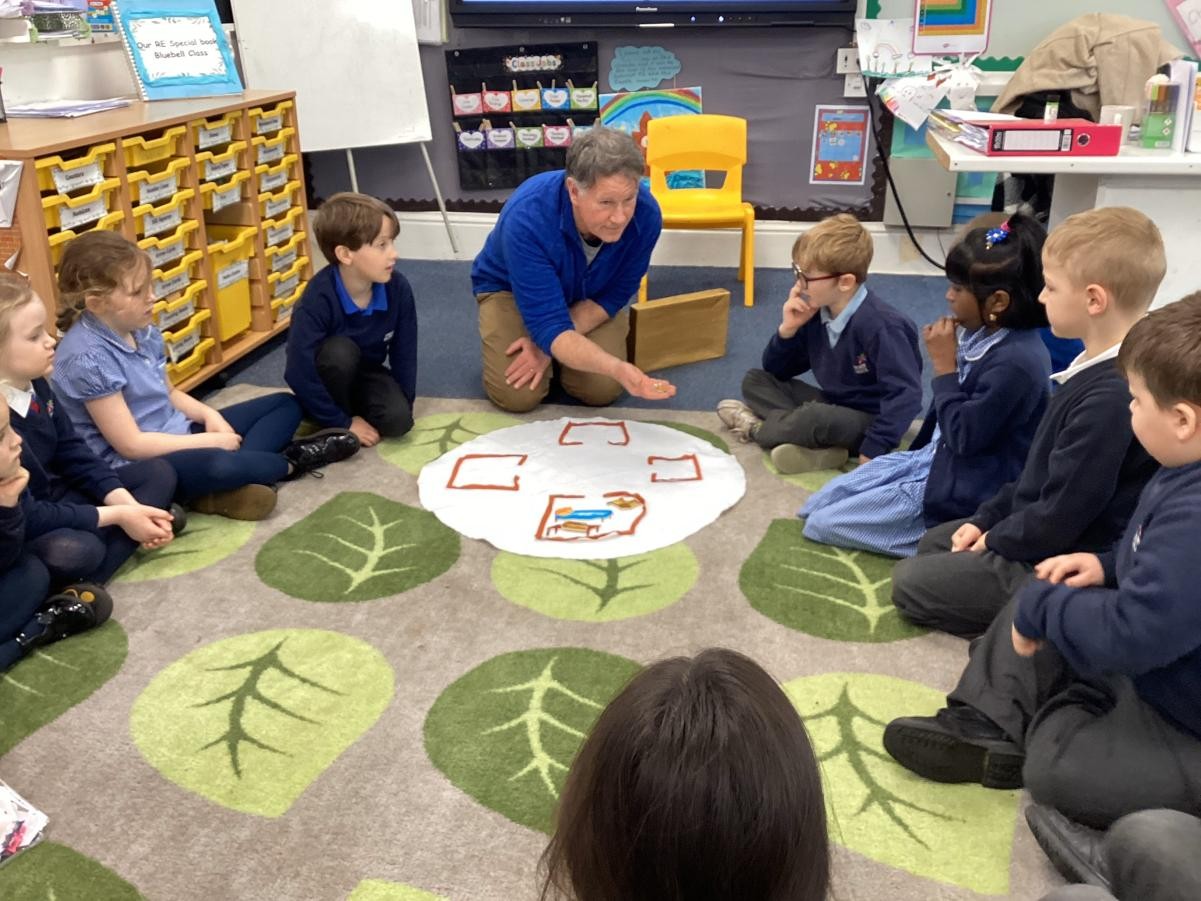At Priory, we are proud to be a Catholic school. We recognise that our children come from a range of backgrounds and abilities. As such, we are sensitive to each child's life experiences and value their individual contribution to school life.
This easy to use teacher-friendly material has been written by a group of experienced diocesan advisors.
It follows on from successful trialling in schools in England and Wales and is based on the theological foundations of the Second Vatican Council, the Catholic Catechism and the revised RE Curriculum Directory and includes the Catholic attainment levels.
The Catechism of the Catholic Church addresses the search for meaning in life. God’s initiative in Revelation who comes to meet us and our response of faith. (cf. CCC26) This pattern guides the structure of the programme and informs the process of each topic, opened up through; Explore, Reveal and Respond.
The aims of RE (as stated in the Religious Education Curriculum Directory) are:
- To present engagingly a comprehensive content which is the basis of knowledge and understanding of the Catholic faith;
- To enable pupils continually to deepen their religious and theological understanding and be able to communicate this effectively;
- To present an authentic vision of the Church’s moral and social teaching so that pupils can make a critique of the underlying trends in contemporary society;
- To raise pupils’ awareness of the faith and traditions of other religious communities in order to respect and understand them;
- To develop the critical faculties of pupils so that they can relate their Catholic faith to daily life;
- To stimulate pupils’ imagination and provoke a desire for personal meaning as revealed in the truth of the Catholic faith;
- To enable pupils to relate to the knowledge gained through Religious Education to their understanding of other subjects in the curriculum;
- To bring clarity to the relationship between faith and life, and between faith and culture.


